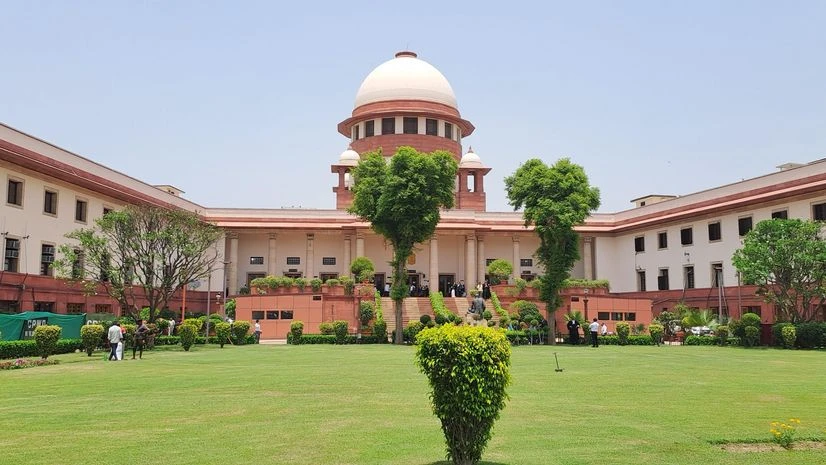The Supreme Court has rejected curative petitions seeking a review of its 2019 judgment on adjusted gross revenues (AGR) payable by telecom firms.
The judgment had permitted the Department of Telecommunications (DoT) to include all non-telecom revenue in AGR.
The curative petitions had been put up by the telcos as a last legal resort to reduce their burden of Rs 1.43 trillion in AGR, which was based on a subsequent judgment in 2020. Of this, nearly 75 per cent comprised interest, penalties, and interest on penalties.
The government was to get Rs 92,461 crore as licence fees and Rs 55,000 crore as spectrum usage charges.
In 2020, the court directed the telcos to pay a penalty and penal interest in the case of default, besides being liable to contempt of court proceedings. The telcos had subsequently pushed for the penalty to be limited to 50 per cent of the pending dues, and an interest rate on the penalty to be lowered to 2 per cent above the State Bank of India’s prime lending rate.
The latest ruling reaffirms the stance that no revaluation or correction will be allowed for AGR, the consolidated figures for which are not known.
More From This Section
The Bench of Chief Justice of India D Y Chandrachud, and judges Sanjiv Khanna and B R Gavai, in their order of August 30, which was made public on Thursday, rejected the hearing of the curative petition and dismissed the pleas.
“Curative petitions are rare and generally considered only when there is substantial miscarriage of justice,” said Ankit Rajgarhia, principal associate, Karanjawala & Co.
Cash-strapped Vodafone had reported a debt of Rs 2.09 trillion at the end of the first quarter (April-June) of FY25, including its deferred spectrum charges to the government.
)
)
This includes deferred spectrum payment obligations of Rs 1.39 trillion and AGR of Rs 70,320 crore.
Shares of Vodafone Idea plummeted by 19.7 per cent on Thursday following the judgment, closing at Rs 10.4 while those of tower management firm Indus Towers fell 8.2 per cent to Rs 393. However, Bharti Airtel’s stock was up 1 per cent, hitting a record high of Rs 1,711 in intraday trade, before closing 1.03 per cent up at Rs 1,672.
The judgment will also have a knock-on impact for mobile tower management firm Indus Tower.
While the official figures haven’t been given by Indus or Vodafone, Citi Research estimated Vodafone’s dues to Indus at Rs 5,700 crore while Ambit Capital estimated it at around Rs 10,000 crore in April.
Tata Teleservices, also party to the case, faced a demand of Rs 16,798 crore compared to its own estimate of Rs 2,197 crore.
Reliance Telecom and Aircel had dues of Rs 25,199 crore and Rs 12,389 crore, respectively.
‘Another moratorium needed’
Analysts say a further conversion of debt may be required for Vodafone.
“In the absence of AGR relief, it could face a financial crisis starting in the second half of FY26, when annual spectrum and AGR payments to the government become due,” investment and capital markets group CLSA said in a report.
In a report, investment banking group Macquarie said while Vodafone’s tariff outlook had been improving, without AGR concessions, it would take the company 25-30 years to organically pay back its obligations. Even then, the average revenue per user would need to rise at a compound annual growth rate of 15 per cent, it said.
The telecom reforms package of 2021 had allowed telcos to convert the interest on the moratorium principal into equity. In February 2023, Rs 16,000 crore of such interest dues was converted into equity, with the Centre becoming the biggest shareholder in the telco, holding 33.1 per cent.
This stake has now reduced to 23.15 per cent after the telco completed a Rs 18,000 crore follow-on public offer (FPO) in April and multiple rounds of preferential share issues to promoters and vendors Nokia and Ericsson in following months.
The promoters -- the Aditya Birla group and Vodafone group -- currently hold the largest chunk of the company at 37.1 per cent.
However, the dues on the principal remain under moratorium until October next year, after which Vodafone Idea will have substantial sums to pay. Between then and March 2026, the company has to fork out Rs 12,000 crore to the government taking into account both the principal and interest.
Subsequently, it needs to pay Rs 43,000 crore annually for five years, or from FY27 till FY31. Officials have maintained a decision on whether to convert the moratorium principal into equity will be taken when the four-year payment moratorium ends in September 2025.
With inputs from Dev Chatterjee
Key figures on AGR dues:
Airtel
DoT estimate of dues: Rs. 43,980 crore, Company's own estimate Rs. 13,004 crore
Already paid : Rs. 18,000 crore
Vi
DoT estimate: Rs. 58,254 crore, Company's own estimate Rs. 21,533
Already paid: Rs 7,900 crore
Source: DoT, CLSA
Timeline of AGR case:
Oct, 2019: SC directs telcos to pay AGR dues of Rs 92,000 crore to the DoT within 180 days, rest subsequently
Sept, 2020: SC backs DoT position for due calculation, mandates telcos to pay AGR arrears over 10 years.
July, 2021: SC dismissed a plea seeking corrections in the demands raised by DoT citing 'arithmetic errors' in the calculation.
2021: Telcos submitted 10 per cent of the dues by March 31, 2021,with remaining balance to be paid in instalments until 2031.
Sept, 2024: SC rejects curative petitions filed by telcos on recalculating the AGR

)